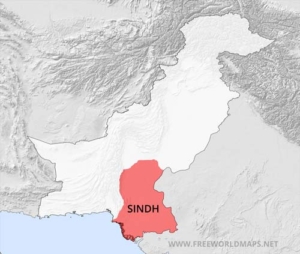Pakistan’s Sindh province is a model for trans rights in South Asia
Support for trans people in Sindlh province resulted from activists’ long, hard work
Human Rights Watch’s Senior Counsel, Asia Division Saroop Ijaz reports that the Sindh province Human Rights Commission has advised police to stop harassing transgender people, which he says is an important development that could be a model for the rest of the country, where the rights of transgender people continue to be at risk.

The Sindh Human Rights Commission has advised police to stop harassing and arresting transgender people, an important step toward changing discriminatory laws, policies, and public attitudes in Pakistan’s Sindh province.
The commission, an independent statutory body, issued the guidance on April 3, relying on constitutional protections and international legal principles. It said that offenses based on poverty and homelessness should be removed so transgender women along with street children do not face criminal charges for behavior they take merely to survive.

In January, the Sindh Cabinet approved reserved seats for transgender people on local councils, so that each local council has at least one transgender representative. In December, the Sindh government extended the benefits of the Benazir Income Support Program (BISP), the country’s largest social safety net, to transgender people. Previously, the BISP provided targeted subsidies to women from low-income households.
While Sindh’s recent measures provide some hope for ending discrimination and persecution of transgender people in the province, Pakistan’s federal and other provincial governments need to do much more.
Between September 2021 and October 2022, 18 transgender people were reported murdered in Pakistan, according to Amnesty International. Discrimination and violence against transgender people is common despite provisions in Pakistani law protecting them.
In 2009, Pakistan’s Supreme Court called on all provincial governments to recognize the rights of transgender people. The judgment specifically called for improved police response to cases involving transgender people, and to ensure the right of transgender people to basic education, employment, and protection. In 2018, the parliament passed a law that broadly protects trans people’s rights. However, in recent years a number of politicians have attacked the law and proposed regressive amendments.
The recognition and support for transgender people’s basic rights to security and dignity in Sindh reflects the hard work of activists who have long advocated for these reforms. But unless Pakistan’s federal and provincial governments take concrete action against violence – including ensuring that those responsible for attacks on transgender people are brought to justice – these communities will continue to be at risk.




